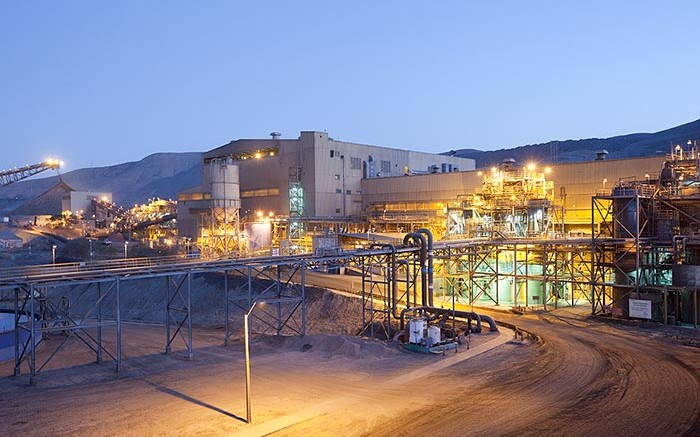Less than a year after Lundin Mining (TSX: LUN) acquired an 80% stake in Freeport-McMoRan’s (NYSE: FCX) Candelaria copper mine in Chile in a deal worth $1.8 billion, a Chilean environmental regulator has filed charges against the Vancouver-based miner for “irregularities” at the mining operation.
The regulator alleges 16 such environmental irregularities at Candelaria between 2013 and 2014, nine of which it describes as “grave,” Reuters news agency reported on May 27.
The most serious problem has been the “failure to fulfill the commitment of reducing the consumption of freshwater … leading to an important loss in the availability of underground water at Copiapo river’s acquifer,” Reuters reported, quoting a statement from the regulator. Lundin reportedly has 10 days to present a compliance plan or 15 days to appeal the charges.
The open-pit mine is in northern Chile’s Atacama desert, one of the driest regions on the planet. Chile is the world’s largest copper producer.
In an email response to questions from The Northern Miner, Sophia Shane, Lundin’s head of investor relations for North America, explains that the Chilean Environmental Superintendent (SMA) has posted a report on its website listing a number of alleged infractions of the environmental approvals held by Compania Contractual Minera Candelaria, the operator of the Candelaria mining complex and a Lundin subsidiary.
“The alleged infractions originate from an inspection that Chilean authorities carried out at Candelaria in June 2013, and relate to various issues, including items such as dust control, road maintenance, brine management at the desalination plant and freshwater consumption. The company is in the process of reviewing the SMA report.”
John Tumazos, founder and CEO of Very Independent Research, says he is puzzled by the news of the infractions for several reasons.
“It’s hard for me to comprehend,” he says in a telephone interview from New Jersey, noting that the Copiapo riverbed has been dry for years; Freeport commissioned a desalination plant in January 2013; and Lundin has only owned the mine since October 2014.
“I was in Copiapo in April 2008 visiting a couple of iron ore properties, and my host wanted to take a shortcut to avoid traffic, and he drove through the riverbed in downtown Copiapo,” he says. “So the draining of the Copiapo is not new news, and my impression in 2008 was that the river had been dry for decades, or at least long enough that people were accustomed to using it as a thoroughfare for traffic.”
Secondly, he says, Freeport dedicated its desalination plant — with a capacity of 500 litres per second — more than two years ago, and operating a desalination plant is not terribly difficult. “There are not a lot of moving parts in a desalination plant,” he says.
“This whole scenario appears totally absurd,” he continues. “In my opinion, the Democratic Republic of the Congo is a better place to operate than Chile these days.”
Tumazos points out that “there are a lot of water politics going around in Chile” under Chilean President Michelle Bachelet. “People are selling their water rights before the government can take them,” he says.
In April, Antofagasta (LSE: ANTO; US-OTC: ANFGY) sold its water business division for US$960 million to Empresas Públicas de Medellín, an electricity, gas, water and sanitation provider that delivers these services to over 20 million people in Colombia, El Salvador, Guatemala, Mexico and Chile.
“Water is a particularly sensitive issue in Chile, and its availability is lifting costs on miners and impacting the ability for operations to expand,” analysts at Investec Securities in the U.K. say in a research note. “Such news flow certainly highlights the growing difficulties for operators in the country undermining its attraction as a mining destination.”
Louis James, senior investment strategist at Casey Research, says he has been concerned for several years now that Chile “has been changing for the worse as far as mining goes,” adding that “this Bachelet administration has only accelerated the fall.”
He tells TNM that “Chile’s government is visibly becoming more and more hostile to mining. It’s a relatively prosperous, stable country, and I think that public sentiment is less and less in favour of mining. Many don’t think they need such dirty business anymore. I have seen this on the ground.
“Naturally, politicians are pandering to these values,” he continues. “Even a change of administration may not be enough to reverse the damage, as it can be difficult to root out such hostility, once it sinks into the unelected bureaucracy. I am not interested in any Chile-focused mineral exploration or production companies until I see serious and lasting improvement there.”
Lundin released first-quarter financial results earlier this year and has applied to extend Candelaria’s mining licences until 2030. The Chilean government is reviewing the company’s environmental impact analysis, and Lundin expects approval by mid-year.
The application includes a project to build a tailings management facility, with the existing facility reaching capacity by 2017. This project is in the engineering and procurement phase, with detailed engineering expected by year-end. Construction could start mid-year, after permitting. A five-year mine plan optimization is also underway at Candelaria, with results expected before September, the company stated.


Be the first to comment on "Lundin faces scrutiny in Chile"